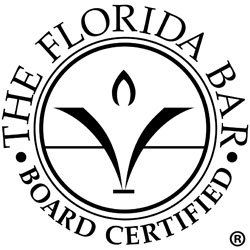The easiest way to deal with property division during a divorce is to decide how to divide the property up amongst yourselves. However, because most divorcing couples aren’t able to amicably decide how to deal with divorce property division issues, however, the matter usually ends up in court. There are two general ways to handle divorce property division.
Community Property: Alaska, Arizona, California, Idaho, Louisiana, Nevada, New Mexico, Texas, Washington, Wisconsin and Puerto Rico are community property states. This means that all marital property is typically defined as community property or separate property. When divorcing, community property is typically divided evenly, and separate property is kept by its owner.
Equitable Distribution: All other states typically follow equitable distribution. This means that a judge decides what is equitable, or fair, rather than simply splitting the property in two. In practice, this may mean that two-thirds of the property goes to the higher earning spouse, with the other spouse getting one-third. Note that when courts divide property, that does not necessarily mean the property is literally, physically split. A court will usually add up the total value of the marital estate and grant each spouse a percentage.
What’s the difference between community and non-community property? This varies from state to state, but here are the basics: Community property: This includes all property accumulated during marriage, including debts, unless the property or debt is designated otherwise (e.g., a loan made out specifically to one person based on their separate property). Separate property : This can include property acquired before the marriage, gifts, court awards, inheritance, and pension proceeds. Also, property acquired with separate property remains separate property (e.g., a boat bought with inheritance money). Be aware, however, that some separate property items may become community property, such as a business started before marriage but sustained by the marriage (this type of situation is usually referred to as commingled property). Property purchased with commingled funds : If you purchase or maintain items with a mixture of separate and community property, it is likely that a court will decide it is community property. If you want to keep your property separate, you need to work to keep it completely separate, otherwise it will become commingled and converted to community property. Who gets the house? It depends on the circumstances. For instance, if you have children, then the parent who does the majority of the child-raising generally keeps the marital home. If one partner purchased the house with separate funds and there are no children, then they can keep it and legally require the other partner to vacate. If there are no children involved, then courts vary considerably on how they distribute the marital home. Neither party typically has a legal right to ask the other to leave, but one partner can always request it. If you and your spouse cannot agree, the court will decide based on the rules in its state and which kind of property system your state has. Because spouses typically don’t have the right to prevent the other from living in the home, it may be illegal for them to lock you out, and you can call the police. The obvious exception to this is in cases of domestic violence. If this is the case, immediately seek a restraining order and contact a domestic violence hotline. Sometimes relationships can become very toxic, so be careful not to allege domestic violence out of spite just to get the other partner out of the house. If the Judge believes you have done this, then you can seriously jeopardize your rights to marital property, including the house.
The post What happens to our property and debt if we get divorced? appeared first on John M. Kvartek, PLLC.










